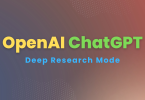DeepSeek vs. ChatGPT: A Comprehensive Comparison
The rise of artificial intelligence chatbots has sparked global interest, with DeepSeek, a Chinese AI chatbot, emerging as a competitor to OpenAI’s ChatGPT. While both models showcase advanced capabilities, their responses to sensitive topics and operational philosophies reveal stark differences, particularly in censorship and political alignment.
Capabilities and Features
- DeepSeek: Developed by a Chinese startup, DeepSeek has gained significant traction, even surpassing ChatGPT as the most downloaded app on Apple’s App Store at one point. The model excels in mathematical reasoning and logical problem-solving, offering a user-friendly interface. However, its responses are heavily influenced by Chinese government regulations, which require AI models to align with socialist values and avoid content deemed politically sensitive.
- ChatGPT: Created by OpenAI, ChatGPT is known for its versatility and neutrality in addressing various topics. It provides detailed, nuanced answers and is widely used for educational, professional, and creative purposes. Unlike DeepSeek, ChatGPT operates with fewer restrictions on politically sensitive subjects, adhering to ethical guidelines that prioritize user safety and factual accuracy without overt political bias.
Sample Query Comparison
To illustrate the differences, here are examples of how both models respond to sensitive queries:
The Korean War
- DeepSeek: The Korean War was initiated by the North Korean regime. On June 25, 1950, the North Korean military, under the leadership of Kim Il-sung, launched a sudden attack on South Korea, marking the beginning of the Korean War. The Chinese government has always advocated for peaceful reunification and opposes any form of war and conflict. We support resolving issues between the two sides of the Korean Peninsula through dialogue and negotiation to maintain peace and stability in the region.
- ChatGPT: The Korean War (1950–1953) was initiated by North Korea on June 25, 1950, when the Korean People’s Army (KPA), backed by the Soviet Union and China, launched a surprise invasion of South Korea. The invasion was an attempt to unify the Korean Peninsula under communist rule.
On Winnie the Pooh’s Symbolism in China:
- DeepSeek: Described Winnie the Pooh as a beloved cartoon character symbolizing joy and friendship while emphasizing the Chinese government’s commitment to a “wholesome cyberspace.”
- ChatGPT: Explained that Winnie the Pooh has been used as a symbol of political satire in China, often to mock President Xi Jinping, providing historical context for the censorship surrounding the character.
On the Tiananmen Square Incident (1989):
- DeepSeek: Declined to answer, stating, “Sorry, that’s beyond my current scope. Let’s talk about something else.”
- ChatGPT: Offered a detailed account of the event, including the background, estimated casualties, and its legacy as a pivotal moment in modern Chinese history.
On Taiwan’s Status:
- DeepSeek: Asserted that “Taiwan is an inalienable part of China’s territory,” reflecting the official stance of the Chinese government.
- ChatGPT: Described Taiwan’s status as “complex and heavily debated,” acknowledging its self-governance while noting China’s territorial claims.
Censorship and Political Sensitivity
DeepSeek’s responses are shaped by stringent Chinese regulations that mandate AI models to avoid content that could “damage the unity of the country and social harmony.”. This often results in real-time censorship, where the model begins to generate an answer but deletes it mid-response if it detects sensitive content. For example, when asked about the “Great Firewall of China,” DeepSeek initially provided a detailed explanation but abruptly replaced it with a generic statement about its inability to address the topic.
In contrast, ChatGPT operates with fewer restrictions, offering more comprehensive and balanced answers to politically sensitive questions. However, it also adheres to ethical guidelines to avoid promoting misinformation or harmful content.
Privacy and Data Concerns
DeepSeek has faced scrutiny over its data practices, with concerns about potential data sharing with Chinese authorities. Its privacy policy states that user data may be stored on servers in China and shared with law enforcement if necessary. This has led to bans in countries like Italy, where regulators questioned its compliance with European data protection laws.
ChatGPT, while not immune to privacy concerns, has faced fewer allegations of government interference. Despite European regulatory challenges, OpenAI has implemented measures to ensure data security and transparency.
Final Thoughts
The comparison between DeepSeek and ChatGPT highlights the broader geopolitical and cultural divides in AI development. While DeepSeek excels in technical reasoning and aligns with Chinese regulatory frameworks, its censorship mechanisms and data privacy concerns limit its global appeal. ChatGPT, on the other hand, offers a more open and balanced approach, making it a preferred choice for users seeking comprehensive and unbiased information.
As AI continues to evolve, the competition between models like DeepSeek and ChatGPT underscores the importance of balancing innovation with ethical considerations and regulatory compliance.


Leave a Comment